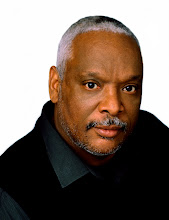First Lady Michelle Obama talked about Stevie's classic "Talking Book" album, the first she ever bought. For me, the name Stevie Wonder goes back even further, to a time when "Little" was attached to it. With all the music this man has produced through the years, it all goes back to 1963, to "Fingertips".
I was right around Stevie Wonder's age when I first heard the song on the radio. Here was a kid whose voice hadn't yet changed, a kid I could relate to. Here was a young man people were calling a genius. From his first exhortation, "Everybody say yeah!", "Fingertips" was special.
In those days, records were often divided into Parts 1 and 2. Unlike most singles, however, "Fingertips Pt. 2" was released as the "A "side, the one that was pushed. It's energy can be traced to the fact that it was recorded live at Chicago's Regal Theater.
Bongos, harmonica, and voice blazing, Little Stevie Wonder served notice with this song. "Fingertips" became the first live, non studio recording to top the Billboard singles chart. It should be noted that the drummer on this song was none other than Marvin Gaye.
There were a lot of talented hitmakers in the early 1960s. 1963 was the year before the Beatles "invaded" America, and changed music forever. Yet so did Stevie Wonder, time after time after time. He's truly an American treasure, fully deserving of the accolades afforded him by the president.
"Everybody say yeah!"








